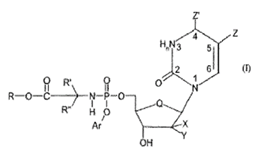Patents: Worldmapper

In his acceptance speech, Francis Gurry, the new Director-General of the WIPO, addressed "the question of how intellectual property can contribute to the reduction of the knowledge gap and to greater participation on the part of the developing and least developed countries in the benefits of innovation and the knowledge economy."
A graphic illustration of just how far the World IP Organization and indeed the WORLD have to go to achieve that end is provided by Worldmapper, a multidisciplinary team of mainly Sheffield academics led by Professor Danny Dorling.
They have a whole load of interesting maps one of which on the relative economic decline of the British Isles has already been blogged by BBC correspondent Mark Easton. However the map that impressed me (and one which perhaps explains the reason for our relative decline) is the Map of Patents Granted. North America is big as one would expect it to be but Japan appears on the map to be even bigger. Half way between those bulges is Europe - somewhat smaller than the USA and Japan when taken as a whole but still quite respectable. However, the UK is one of the smaller components of the European space - much smaller than Germany or even France. Interestingly, if you look at the PDF version of the map you will see tables which show that in terms of granted patents per head the Bahamas and Greenland are pretty close to the top, just behind Japan, Korea and the USA. The UK does not even appear in the tables.
However, the most shocking feature of this map - which brings me back to Gurry's acceptance speech - is the titchiness of Africa and indeed Latin America. The commentary on the map explains quite fairly and accurately the purpose of a patent but also what is wrong with patenting:
"A patent is supposed to protect the ideas and inventions that people have. Patenting something will then allow the owner of the patent to charge others for the usage of an idea or invention. The aim is to reward the creator for their hard work or intelligence. But patents can prevent people from using good ideas because they cannot afford to do so."
The Worldmapper team noted that in 2002 (when the data was taken) 312 thousand patents were granted around the world. More than a third of these were granted in Japan and just under a third in the USA. However, they observed:
"A quarter of all territories had no new patents in 2002, so will not profit from these in future years as others will."
Unless something is done about that Africa and South America will be condemned to perpetual backwardness.
Since 2002 Japan, China and Korea will have grown fatter and we will have grown thinner. In his speech to the domain name panellists on 17 Oct 2005 (I was there) Gurry predicted that most of the world's new technical language will be in a North Asian language by the end of this decade reflecting, no doubt, the relative economic decline of the USA and EU and the ascendancy of the BRIC states or at least of China and possibly India. A decline, incidentally, which has probably been accelerated by the shambles in the US Congress earlier this evening.
The modern intellectual property system is very much a product of capitalism and the events of the day have shown that capitalism does not always work well. Clearly we are going to have to rebuild the world economic system. This will be a great opportunity to consider whether the world IP system cannot be made to work a little more equitably.

Comments